"Our top contribution to Vietnam's agricultural industry is providing clean, safe, stable jobs in communities where this is typically not the case. Secondly, we are setting a better standard of production with zero chemical residues and net zero greenhouse gas emissions that we hope will encourage other producers to make better decisions," says Jacquie O'Hara, CEO of Orlar.
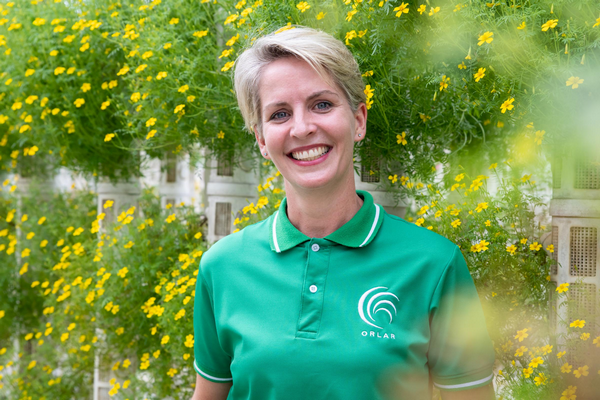
Jacquie O'Hara
Orlar is a women-led vertical farming company based in Vietnam that produces up to 20 tons of premium vegetables per hectare per month. The company uses its proprietary tower systems, which it calls "pods." In the company's 1.1-hectare greenhouse, Orla has roughly 14.000 towers and produces lettuce, bok choi, edible flowers, herbs, tomatoes, kale, and strawberries. These products are supplied to more than 280 hotels and restaurants in Vietnam, as well as 90+ supermarkets, grocery stores, and distributors.
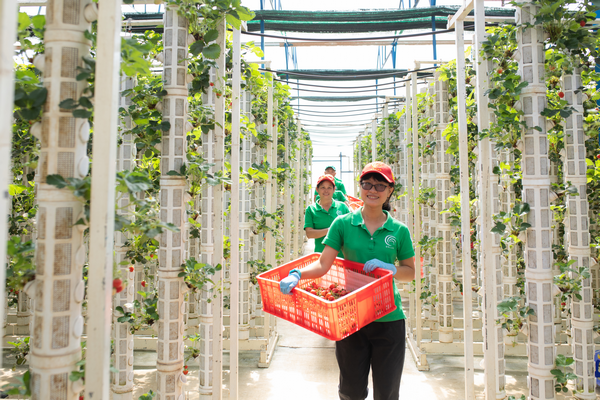
"Chefs love our products for their delicious taste, long shelf life, and value for money. Supermarkets love our products because we offer quality equivalent to that of imports but at a price point consistent with local products. The only complaint we receive is that we can't supply enough of our delicious, nutritious, safe products to meet demand," says Jacquie.
Despite the high quality of Orlar products, the company positions its products just slightly higher than inferior local products in hopes of providing every family with access to clean and nutritious food. As Orlar scales up production, they expect to further increase their efficiency and become even more price competitive.
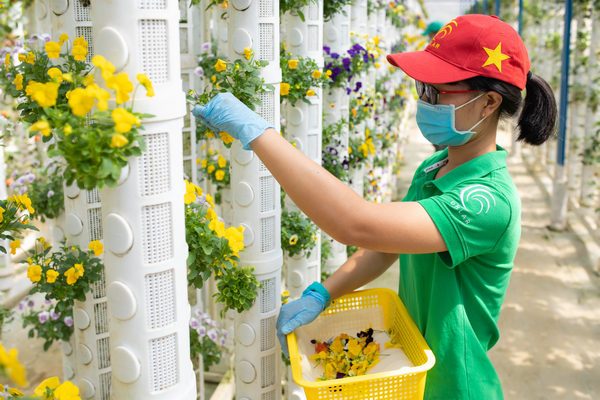
Edible flowers harvesting
Designed for and driven by hyper-efficiency
As Jacquie explains, Orlar is driven by hyper-efficient technology that uses 0.1-1.0% of the energy required by competing indoor agricultural technologies. The system was designed to eliminate or greatly reduce the use of various inputs such as substrate, synthetic chemicals, and artificial lighting. The company uses no growing disposable media, has 100% nutrient capture, nearly 100% water efficiency, and reportedly uses 0.05% of the energy of other vertical farming operations.
Altogether, this allows Orlar to produce temperate crops and price them at $1-$4 per kg and access global middle-class markets. The company currently has more than 26 different crops in production and will expand its portfolio to include eggplant, cucumber, peppers, and melons, among other crops.
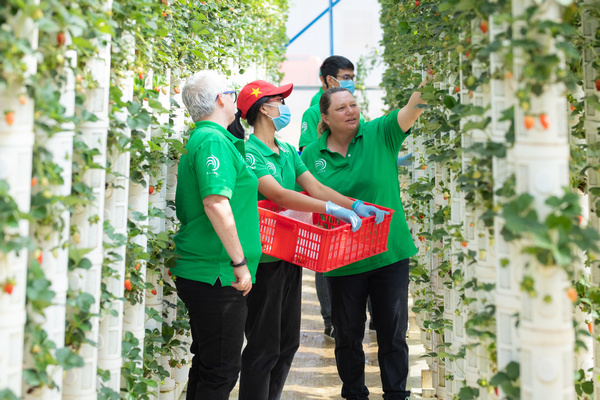
Jacquie prides the fact that Orlar is a women-run business
Three strategies to guide company growth
Orlar is currently implementing three strategies to expand its production capacity, for which the company is currently raising capital. The first strategy is to expand its production capacity in the Central Highlands of Vietnam to meet the ever-increasing demand for fresh, safe, and local products.
Secondly, Orlar is planning to prove the viability of its technology at low altitudes, specifically in the Mekong Delta. Whereas the climate in the Central Highlands is temperate, that of the Mekong Delta is considered tropical thanks to its high temperature and high humidity. For this low-altitude project in the Mekong Delta, Orlar received a grant from the Australian Department of Foreign Affairs (DFAT) under the Business Partnership Program. The company has also developed key partnerships, including SNV Netherlands Development Organisation, Raise Partners, and DFAT. Construction is expected to begin in Q4 of 2022.
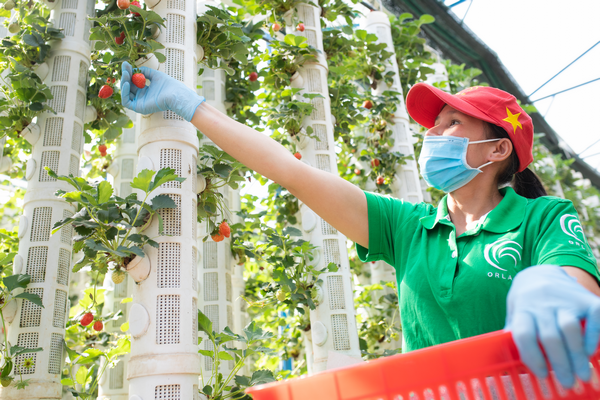
"SNV Netherlands Development Organisation promotes market-based and inclusive agricultural value-chain development approaches that improve the lives of poor and vulnerable smallholder farmers. Raise Partners is a collaborative consulting practice specializing in cross-sector partnerships and strategy development to support environmental, social, and economic impact projects.
DFAT works with international partners and other countries to tackle global challenges, increase trade and investment opportunities, protect international rules, keep our region stable and help Australians overseas," explains Jacquie, with respect to the project partners.
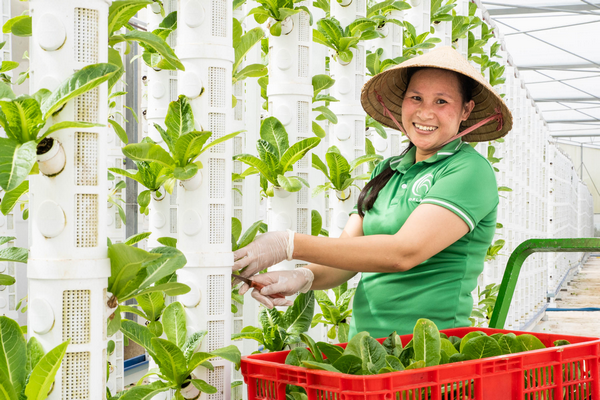
The final strategy involves licensing Orlar's vertical growing technology in other countries to help the company expand further faster and "get the technology into the hands of as many potential local producers as possible to magnify our impact on food security, climate change adaption and improving lives," says Jacquie.
The company is already forming licensing agreements for Thailand, the Netherlands, Australia, USA, and Cambodia, among other countries.
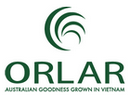 For more information:
For more information:
Jacquie O'Hara, CEO
Orlar
https://esg.orlar.com
